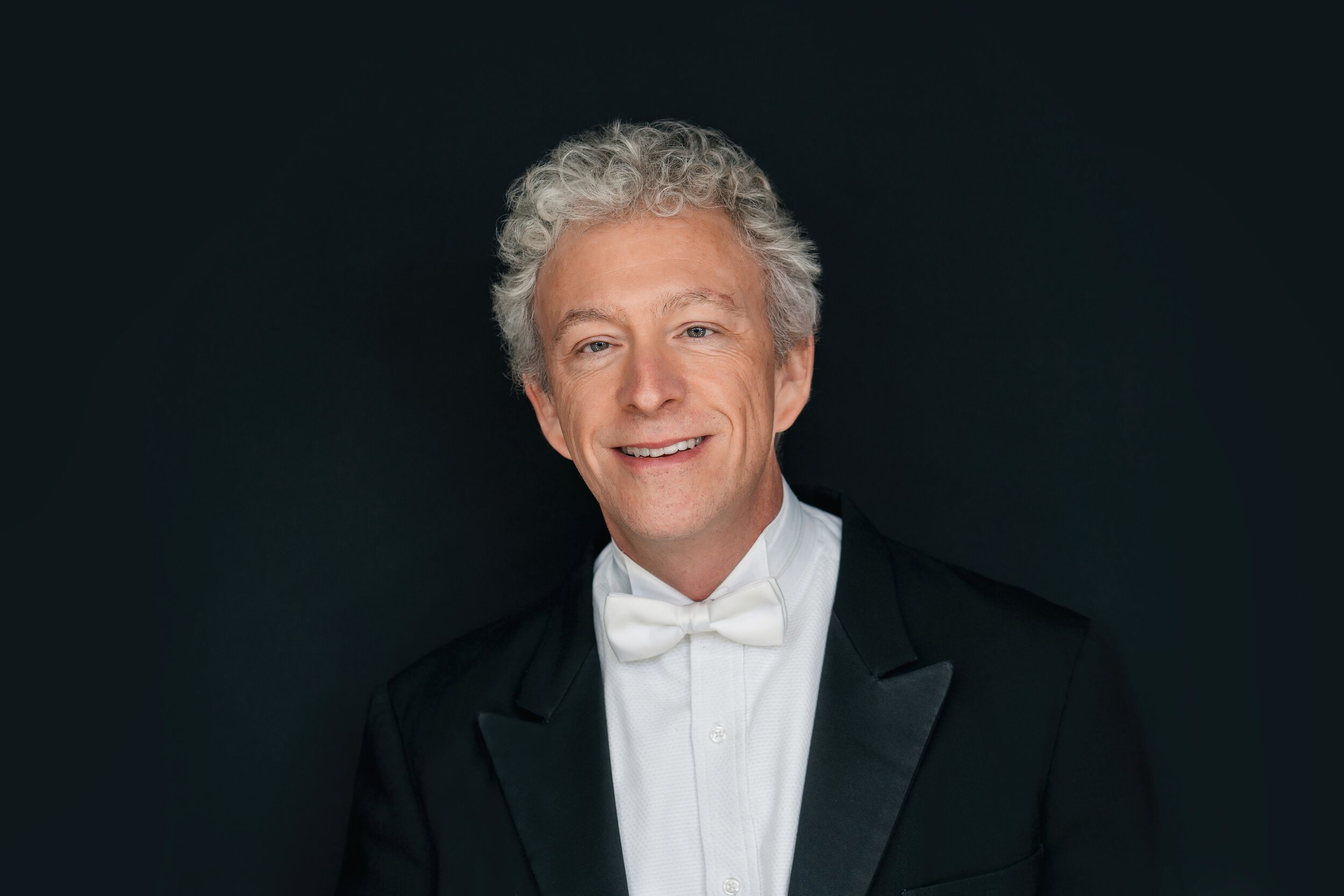Interview with Jason Love
by Karla Castner
“No composer can express the range of emotions (conveyed in the Requiem text) better than Mozart. He is a master opera composer, a dramatist at heart, so he can brilliantly tell the story of what it is to be a human being.” – Jason Love, Columbia Orchestra music director.
Conductor and cellist Jason Love, now in his 22nd year as music director of the Columbia Orchestra, takes the baton for the performance of Mozart’s Requiem. The June 6th concert marks the Columbia Orchestra’s debut with the Concert Series, launching a long-term collaboration. In this email interview, Jason talks about life as a conductor, challenges in performance preparations caused by the pandemic, and the benefits of the Columbia Orchestra/St. Louis Church Concert Series collaboration for the community.
What or who inspired you to choose the cello as your instrument?
Although I came from an extended musical family, the musicians were mostly uncles and aunts who played guitars and sang songs from their young lives in the 1940s and 50s. I came to music because my sister played the violin. When I started 3rd grade and wanted to pick out a string instrument to play at school, my sister said, “Just pick the cello – they never have enough people to play cello.” So that’s what I did. In retrospect, the shortage is usually in the violas and basses, so I’m surprised I ended up as a cellist!
How would you describe your conducting style?
I was very influenced by my conducting teacher who talked about the tension between two aspects of the conductor’s role. On the one hand, the conductor’s job is to help the players create the sounds the composer wanted to hear without inserting their own opinions and personality into the piece. On the other hand, it’s impossible for conductors to have a deep connection to the music without bringing their own taste, experience, and perspective to the performance. Performing is often a balancing act of finding a deep personal connection to the piece that will inspire the players to perform it passionately, while still fundamentally realizing the composer’s intent rather than the conductor’s ideas or personality. You have to find a deep connection to Mozart’s music, but then get out of his way!
Biggest surprise about conducting/life of a conductor when you first entered the profession?
It’s not fair to call it a surprise since we’re always warned ahead of time, but as a player, most of your time is spent preparing yourself for performing—practicing your instrument and studying the music. Conductors also help to manage the orchestra as an institution, so often the lion’s share of their time is spent on administrating the program and creating plans that will help the orchestra serve the community more effectively. That often leaves precious little time for the music itself!
Tell us about your experience in conducting Mozart’s Requiem.
Although I know the piece and have played in the orchestra in the past, this is the first time I’ve actually conducted it. It’s always an undertaking putting together a chorus with an orchestra for an hour-long piece. Since we’ve been trying to find an opportunity to do the piece for years, we’re thrilled to finally have the chance.
Of course, the situation is dramatically different from what we expected because of the pandemic. So much of the joy engendered by collaboration is working live with singers to help them realize the interpretation, and we’re able to do that with the featured soloists. Unfortunately, for the Pastorate singers augmenting the Requiem performance, live rehearsals and performance were just not possible this year. So we had to find a creative technological solution that allows these singers to virtually create a performance that would have the range of flexibility and emotion we’re used to creating in a live performance. It’s been quite a learning curve, but with successful results!
The June performance of Requiem provides an opportunity to reflect on and commemorate individuals who succumbed to COVID-19. Can you share your thoughts on why Requiem is the perfect music for this collective moment of remembrance…and hope?
The Requiem text combines the sorrow of loss of loved ones with feelings of joy evoked by their memory and hope for the futures of those who remain. No composer can express that range of emotions better than Mozart. He is a master opera composer and a dramatist at heart, so he can brilliantly tell the story of what it is to be a human being.
The June Concert “Reflect, Rejoice” marks the beginning of a planned long-term partnership between the St. Louis Church Concert Series and the Columbia Orchestra. Other than joint performances, what will be the benefits of this collaboration?
Putting together the literally hundreds of people it takes to do these large-scale works for chorus and orchestra is a huge undertaking. But of course, the pieces that it allows the audience to experience are very special! We’ve done some of these works from time to time with various groups, and each time it can feel like re-inventing the wheel.
Having a partnership between the orchestra and St. Louis means creating a way to perform amazing works that we both want to undertake, but that neither of us can realize as easily without the other. Over time we hope to expand the collaboration to include even more partners to make the impact in the community the greatest it can be.

